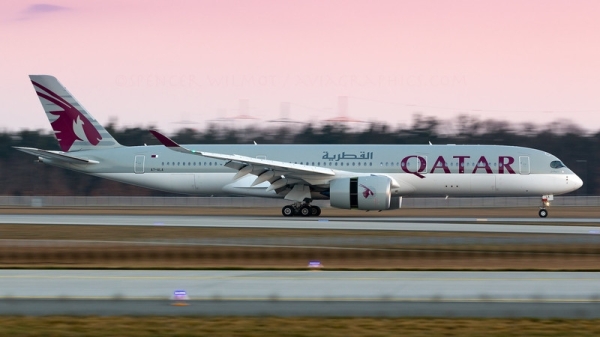MEPs press EU Commission over Qatari-paid business-class flights
Pro-transparency MEPs are asking probing questions into possible conflict of interest between a senior EU commission official and Qatar.
The demand follows revelations by Politico Europe that the commission’s director-general of transport, Henrik Hololei, had two of his nine free business-class trips on Qatar Airways paid for by Qatar.
Most of the freebies spanned a period where his department was leading market-access negotiations for the airline.
In a statement on Friday (3 March), German Green MEP Daniel Freund said that such antics "might constitute attempted bribery and should be investigated."
Freund, along with eight other MEPs, have since sent a letter asking for clarifications from EU transport commissioner Adina-Ioana Vălean.
They also note, in their letter, that Hololei had further failed to disclose several of the trips and scheduled meetings with lobbyists over the affair.
Pressed by reporters on Friday, the European Commission denied any conflicts of interest.
"We had excluded any conflicts of interest and this is why that mission was authorised in compliance with the applicable rules," said EU commission spokesperson, Balazs Ujvari.
Ujvari said a prior analysis is carried out whenever someone else covers part or all the fees for an EU official on a mission.
"The rules were complied with and it was found that there was no conflict of interest," he said.
Those rules are out outlined in a 29-page European Commission guide book.
They state that an authorising officer must first verify in advance that there is no potential conflicts of interests when all or part of the expenses are paid by an outside party.
It further adds that if no issues have been identified, then the question of conflict can only be investigated "in exceptional circumstances."
The European Commission said that it is reviewing those guidelines in a process that started at the end of last year.
But Ujvari also noted that the commission’s review may also make further clarifications and changes, if needed.
Dana Spinant, a senior EU commission spokesperon, was more blunt.
"We are currently revising the guidelines to make them stricter and to avoid of conflicts of interests," she said.

